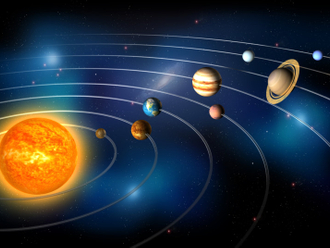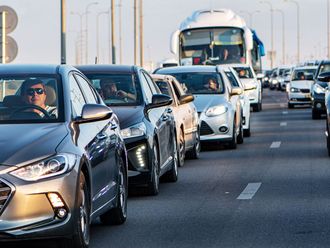A political inevitability Indian Muslims and liberal Hindus always dreaded happened on September 13 when controversial politician Narendra Damodar Modi was anointed the Bharatiya Janata Party’s prime ministerial candidate for the 2014 elections.
The announcement makes little difference as Modi is long considered a poster boy of BJP and other right-wing Hindutva affiliates. Despite this certainty, the formal coronation of a man who Muslims have long held in contempt, for justifiable reasons, has come as a shock to many.
Indians will vote early next year in a bitterly fought battle for Delhi’s throne. In the months leading to the April-May 2014 elections, a high-pitch campaign is expected and Modi will increasingly take centre stage — his persona, style of governance and controversial past will all be debated — effectively side-stepping bigger, critical issues like poor state of Indian economy, dismal record of the Manmohan Singh government and corruption scandals that dogged his tenure.
Many observers say Modi’s candidature is a lifeline for the scam-tainted Congress government that was on ventilator support till recently.
Modi is arguably the most charismatic politician since Indira Gandhi. He is the chief minister of coastal Gujarat where he has won three elections in a row since 2002. He is a great communicator and leaves his audience spellbound with sharp, focused, hard-hitting, finger-waving speeches.
At a time when Prime Minister Singh has disappointed Indians by maintaining a deafening silence, Modi has easily occupied the space of a popular leader who effortlessly connects with the masses. A clever strategist, he has captured the imagination of restless young, Hindu voters in cities.
Also besotted are well-heeled middle class and Fortune 500 industrialists who dream of making Modi the CEO of India Inc. They believe a decisive Modi can bail out an ailing economy, halt the rupee decline, wipe out corruption and rescue India out of policy paralysis — issues that have besmirched Dr Singh’s rule.
In recent months, Modi has galvanised BJP cadres in the Hindi heartland, an enthusiasm not seen since BJP’s Ram temple movement in the nineties. Many say Modi is an accomplished administrator and a successful politician, while his Congress rival Rahul Gandhi is a shy kid with school boyish charms.
On the other hand, Modi is an autocratic leader, not a team player. He has little love for critics and treats detractors with disdain and contempt. While many appreciate his perceived decisiveness and love his oratory skills, his critics hate him for his dictatorial style.
In Gujarat where BJP is in power since 2002, Modi has centralised decision making, systematically silenced opposition and muffled civil society voices. But the most serious allegation against him is that his administration was either complicit or a mute spectator when marauding Hindu mobs — some led by BJP ministers and leaders — maimed, raped and murdered hundreds of Muslim men, women and children during the Gujarat riots in 2002.
This allegation has haunted Modi all these years and is unlikely to be forgotten in the run-up to the elections. Senior Gujarat police officers are in jail for killing innocent young Muslims in the name of fighting terrorism. Around 30 policemen are in jail and recently, a top police officer confirmed such extra-judicial killings were a conscious policy of Gujarat government to project Modi as a strong Hindu leader.
The middle class in India is keen to vote out Congress and would like to see a decisive prime minister, but many are uncomfortable with Modi’s record on anti-Muslim riots and extra-judicial killings. Equally disturbing is Modi’s brazen support of his political henchman Amit Shah, who has been charged with murder of Muslim youths.
All this makes Modi a persona non grata and limit his ability to forge new alliances. Modi is extremely popular among Twitter-Facebook savvy urban Hindu youngsters and middle class but will this support translate into popular vote is a matter of conjecture.
“Narendra Modi is the No 1 enemy of India’s Muslims.” This statement, made by Salman Al Nadwi, a prominent Muslim scholar at Lucknow’s Darul Uloom Nadwatul seminary in an interview, broadly reflects Muslim sentiments in India. Not that Muslims were happy with the Congress-led government. The community, until recently, was disillusioned with the UPA for failing to fulfil promises in their rule since 2004. Also, the Congress governments in several states have been accused of implicating Muslims youths in false terror cases. But Modi’s arrival to the centre stage is changing that perception and driving the community back to Congress.
Today, Muslims, who make up around 15 per cent of India’s 1.2 billion strong population, can swing results in close to 200 out of 543 seats in the elected lower house of parliament. Knowing that Muslims can halt his march to Delhi, Modi is trying to impress them.
Recently in Jaipur, participants of a rally were given skull caps and burqas, symbols associated with Islam in India, to distinctively mark their presence in the event addressed by Modi. On his birthday on September 17, the BJP launched drives to recruit Muslims as party members. This symbolism is of little help and Muslims who vote tactically to keep the BJP out of power will do so with a renewed vigour this time because of Modi.
Modi is undoubtedly the most popular politician in India today, but electoral mathematics are stacked against him. Presently, the BJP has 116 seats in the Lok Sabha and Modi’s party has to perform 100 per cent to reach this mark. Secondly, he needs 200 seats to be a serious contender for power. He will still need 72 more for a simple majority in a house of 543 and no party is expected to get majority on its own in 2014. In such an eventuality, BJP will have to dump Modi and look for post-poll alliances.
To Muslims and a large number of secular Hindus, Christians and Sikhs, Modi stands against the very idea of India — a country of rich multi-cultural diversity and tolerance. The Muslims’ principal grudge is Modi’s refusal to apologise for killings that happened under his watch and guard in 2002.
In subsequent years, police officers of his Gujarat administration sourced innocent Muslim youths from all over the country and murdered them in extra-judicial killings. All this was done to demonise Muslims as a community of terrorists and project Modi as a strong-willed, chest-thumping Hindu mascot. His minister Amit Shah and top policemen are facing a murder trial, but Modi has maintained a silence on these killings. It is hard to imagine that a micro manager like Modi was unaware what was happening under his nose.
Bobby Naqvi is the editor of XPRESS, a sister publication of Gulf News.












